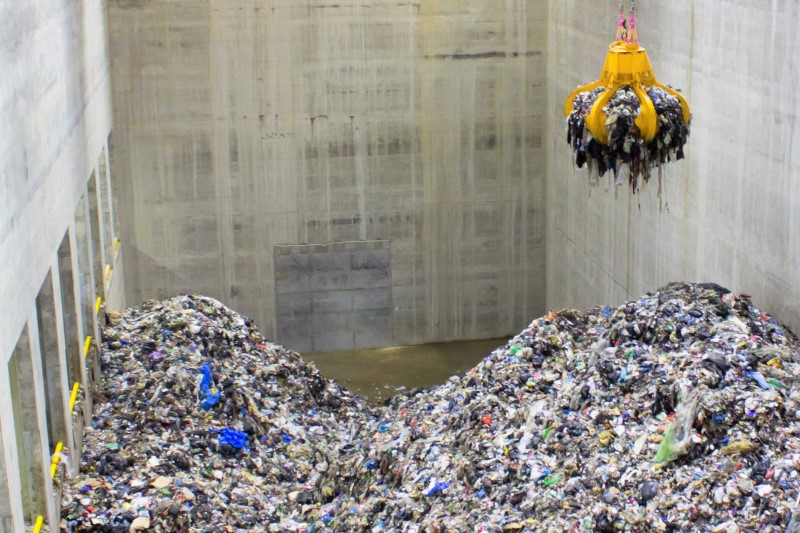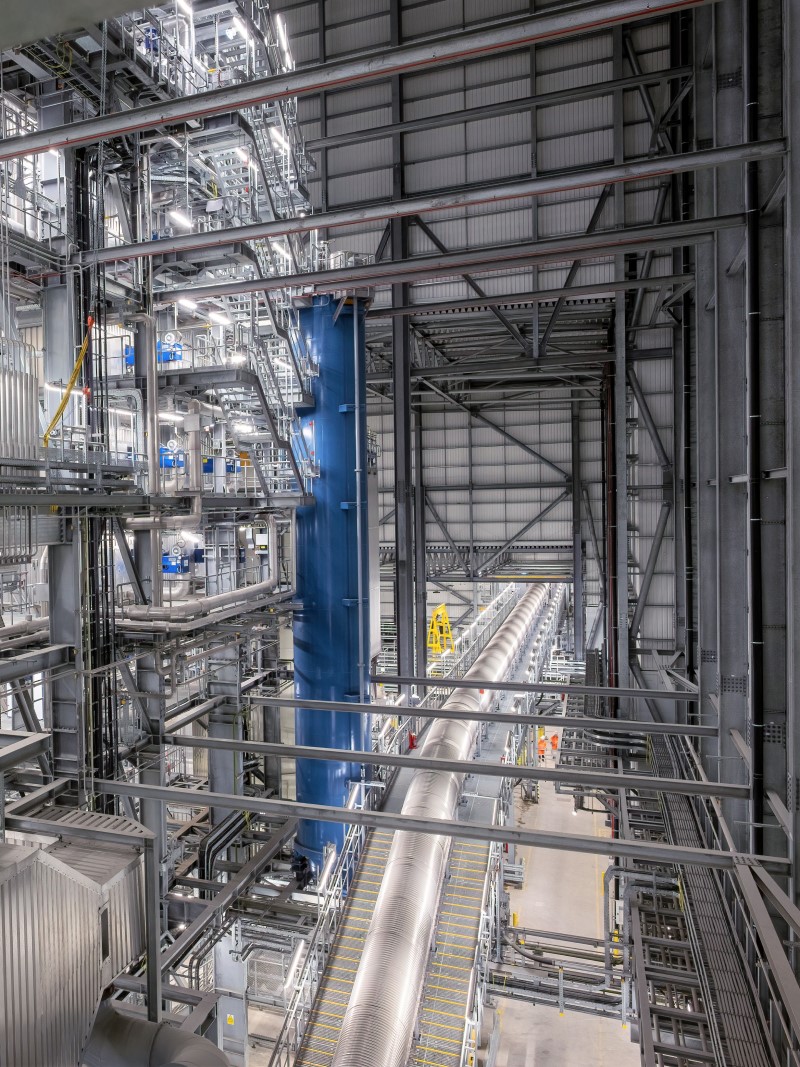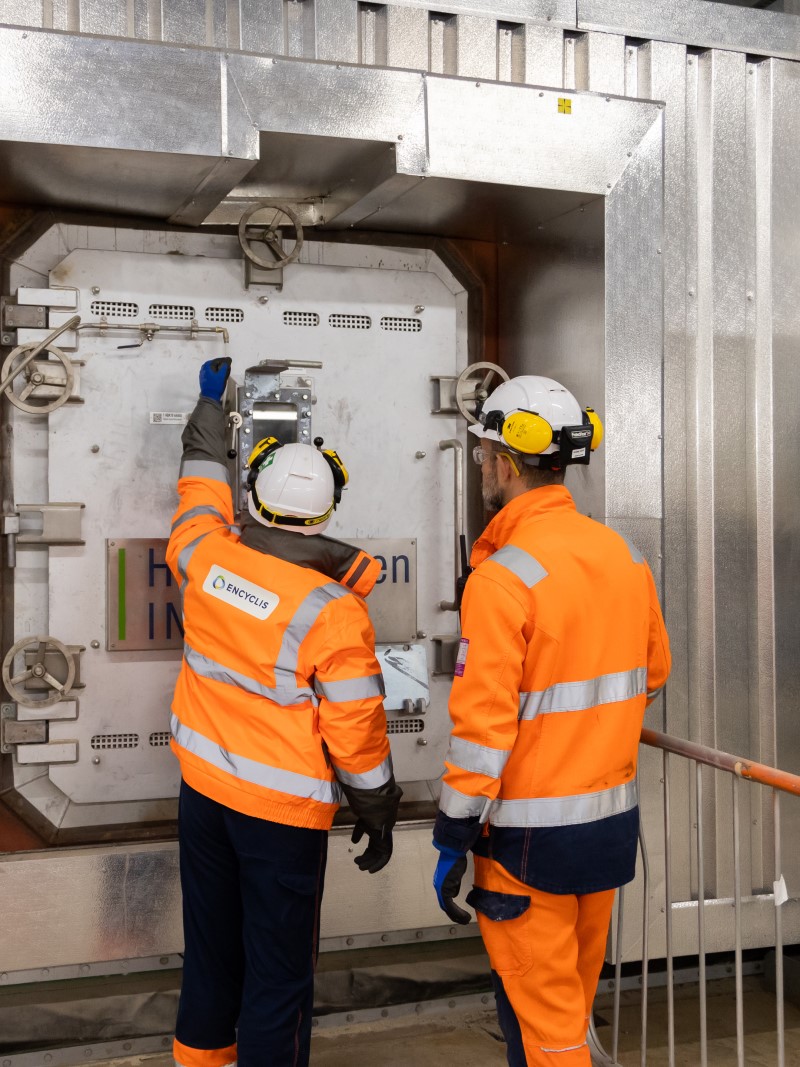Energy-from-waste (EfW) is the process by which non-recyclable, non-hazardous household and commercial waste is used as a fuel to generate electricity.
Energy-from-waste (EfW) is the process by which non-recyclable, non-hazardous household and commercial waste is used as a fuel to generate electricity.



Residual waste is what remains after the separation of recyclable materials. Before the development of modern energy-from-waste technologies, most residual waste was sent to landfill.
Now the same waste can be delivered to energy recovery facilities where it is weighed and tipped directly into a bunker.
The waste is then delivered into combustion chambers heated to above 850°C. The combustion process reduces the waste to approximately 20% of its original volume, turning it into a non-hazardous form of ash. The process also heats up water in steel tubes within the boiler. The water is converted to superheated steam and delivered to a steam turbine that continuously generates electricity for onward transmission.
Flue gases are filtered and cleaned before being released via tall flue stacks. Ash from the furnace is collected separately and taken away for recycling and metal recovery.
Energy-from-waste is an important part of how many countries manage their waste.
Efforts to reduce, reuse and recycle waste are prioritised in most modern economies but EfW provides an efficient solution for what’s left, improving the circularity of materials and supporting the transition towards net-zero.
There are several advantages:
+
Diverting waste from landfill and therefore reducing environmentally harmful methane emissions.
+
Generating sustainable baseload electricity that reduces reliance on fossil fuels.
+
Facilitating district heat networks with the supply of hot water as a by-product of the EfW process.
+
Enabling recovery of reusable metals.
+
Providing inert ash as a source material for aggregates and other construction products.

The circular economy aims to keep products, components and materials at their highest utility and value at all times. Waste does not have to be wasted but can be used as an input for another process. In accordance with the waste hierarchy, waste reduction, reuse and recycling should be prioritised, but for remaining materials, energy recovery has an important role. Nearly every step of a circular economy requires an energy input and recovering energy from leftover waste can help meet this need. In addition to energy recovery, the post-combustion ash arising can be recycled as a construction material, and the hot water produced by the combustion process can be directed into district heating networks.
No, EfW does not interfere with recycling. In fact, experience and data collected in the European Union and the US show that EfW and recycling work well together. In many EU countries, EfW and recycling have grown together because of policies that minimise landfills. The European Environment Agency says there is no evidence to support the argument that energy recovery hinders the development of recycling. The EU countries with the highest recycling rates all use EfW extensively to process waste left over after recycling.
Energy-from-waste facilities are strictly regulated to minimise any risk to human health or the environment. The Environment Agency applies stringent Pollution Prevention and Control guidelines during the design, construction and operation of facilities. Emissions are continuously monitored to ensure they remain within safe limits. Regular reports are submitted and notifications of any exceedances must be urgently issued and investigated. Environmental permits are only issued and upheld when inspectors are satisfied that the necessary conditions are consistently met. In addition, local authorities put planning conditions in place when granting permission for facilities, to limit traffic movements and ensure protection of the local environment.
EfW is a proven waste management solution used extensively in Europe. There are over 500 facilities across Europe safely converting millions of tonnes of residual waste every year into electricity. EfW is extensively used in the United States, Germany, France, Italy, Sweden, Denmark and the Netherlands.
In 2021 a total of 14.9 million tonnes of residual waste was processed across the UK’s 53 operational EfW plants, generating 8.7 billion kWh of electricity which is around 3% of the UK’s power requirements (Source: Tolvik UK Energy from Waste Statistics - 2021).